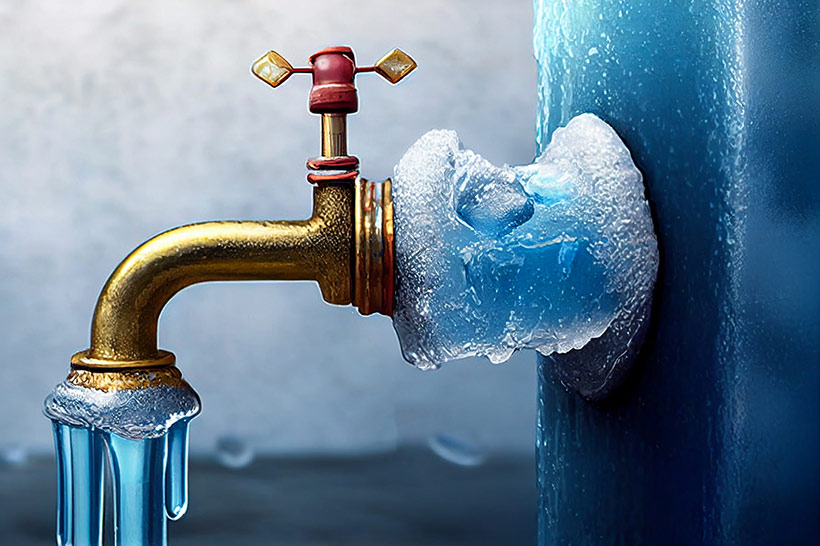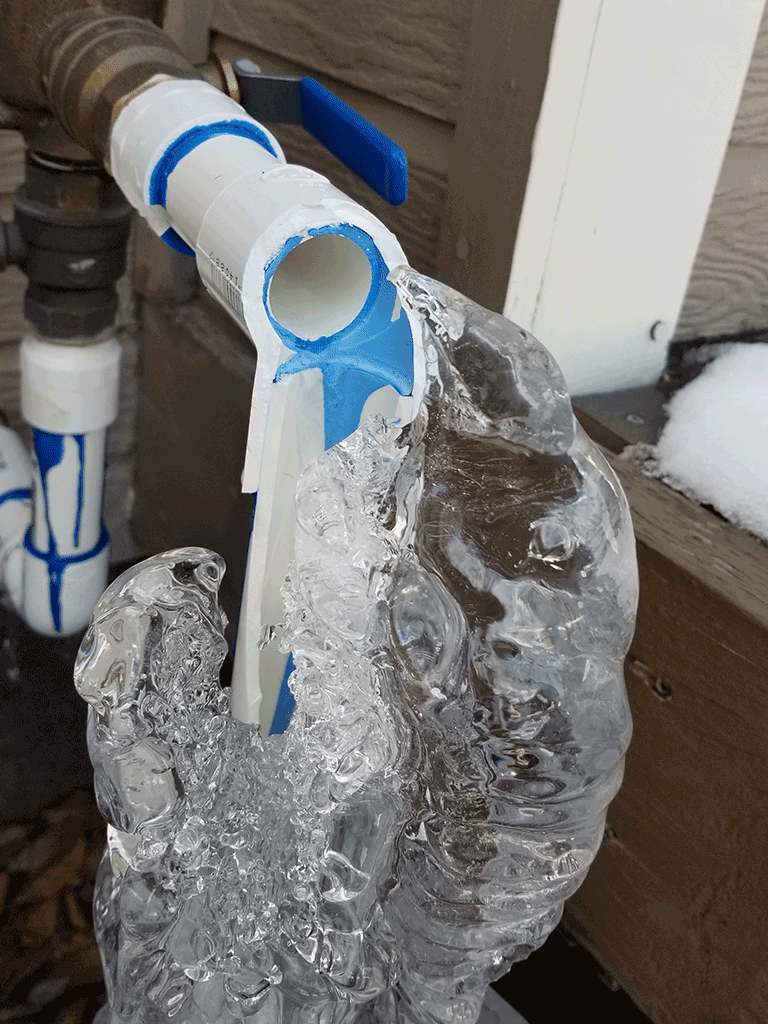How to Protect Your Plumbing from Freezing: Critical Strategies
How to Protect Your Plumbing from Freezing: Critical Strategies
Blog Article
This article listed below involving How to prepare your home plumbing for winter weather is truly captivating. Read on and draw your own personal findings.

Cold weather can ruin your pipes, particularly by freezing pipelines. Right here's how to stop it from happening and what to do if it does.
Intro
As temperature levels decrease, the threat of frozen pipes rises, potentially bring about costly repair services and water damages. Understanding exactly how to stop frozen pipes is vital for homeowners in chilly climates.
Comprehending Frozen Pipelines
What creates pipes to ice up?
Pipes freeze when subjected to temperature levels below 32 ° F (0 ° C) for extended periods. As water inside the pipes freezes, it broadens, putting pressure on the pipe walls and potentially causing them to break.
Threats and problems
Frozen pipes can lead to supply of water disruptions, home damage, and costly repair work. Ruptured pipelines can flooding homes and trigger comprehensive architectural damage.
Indicators of Frozen Pipeline
Identifying icy pipelines early can avoid them from breaking.
Exactly how to recognize frozen pipelines
Look for reduced water circulation from taps, uncommon odors or noises from pipes, and noticeable frost on revealed pipes.
Prevention Tips
Insulating prone pipelines
Cover pipelines in insulation sleeves or make use of heat tape to safeguard them from freezing temperatures. Focus on pipelines in unheated or outside areas of the home.
Heating methods
Keep indoor spaces appropriately warmed, especially areas with plumbing. Open cupboard doors to permit warm air to distribute around pipes under sinks.
Protecting Outside Plumbing
Garden hose pipes and outdoor taps
Detach and drain yard hose pipes prior to wintertime. Install frost-proof faucets or cover outdoor taps with insulated caps.
What to Do If Your Pipelines Freeze
Immediate actions to take
If you think frozen pipes, maintain faucets open up to ease stress as the ice melts. Utilize a hairdryer or towels taken in warm water to thaw pipelines gradually.
Long-Term Solutions
Structural modifications
Take into consideration rerouting pipelines far from exterior walls or unheated locations. Add additional insulation to attic rooms, cellars, and crawl spaces.
Upgrading insulation
Invest in premium insulation for pipes, attics, and walls. Proper insulation helps preserve consistent temperatures and reduces the risk of icy pipelines.
Final thought
Avoiding frozen pipelines calls for positive steps and quick actions. By comprehending the causes, signs, and preventive measures, homeowners can shield their pipes throughout cold weather.
Helpful Tips to Prevent Frozen Pipes this Winter
UNDERSTANDING THE BASICS: WHY PIPES FREEZE AND WHY IT’S A PROBLEM
Water freezing inside pipes is common during the winter months, but understanding why pipes freeze, and the potential problems it can cause is crucial in preventing such incidents. This section will delve into the basics of why pipes freeze and the associated problems that may arise.
THE SCIENCE BEHIND FROZEN PIPES
When water reaches freezing temperatures, it undergoes a physical transformation and solidifies into ice. This expansion of water as it freezes is the primary reason pipes can burst. As the water inside the pipe freezes, it expands, creating immense pressure on the walls. If the pressure becomes too great, the pipe can crack or rupture, leading to leaks and water damage.
FACTORS THAT CONTRIBUTE TO PIPE FREEZING
Low Temperatures: Extremely cold weather, especially below freezing, increases the risk of pipes freezing. Uninsulated or Poorly Insulated Pipes: Pipes located in unheated areas, such as basements, crawl spaces, or attics, are more prone to freezing. Insufficient insulation or lack of insulation altogether exacerbates the problem. Exterior Wall Exposure: Pipes running along exterior walls are susceptible to freezing as they encounter colder temperatures outside. Lack of Heating or Temperature Regulation: Inadequate heating or inconsistent temperature control in your home can contribute to frozen pipes. PROBLEMS CAUSED BY FROZEN PIPES
- Pipe Bursting: As mentioned earlier, the expansion of water as it freezes can cause pipes to burst, resulting in significant water damage.
- Water Damage: When pipes burst, it can lead to flooding and water damage to your property, including walls, ceilings, flooring, and personal belongings.
- Structural Damage: Prolonged exposure to water from burst pipes can compromise the structural integrity of your home, leading to costly repairs.
- Mold and Mildew Growth: Excess moisture from water damage can create a favorable environment for mold and mildew growth, posing health risks to occupants.
- Disrupted Water Supply: Frozen pipes can also result in a complete or partial loss of water supply until the issue is resolved.
WHY CERTAIN PIPES ARE MORE PRONE TO FREEZING
- Location: Pipes located in unheated or poorly insulated areas, such as basements, crawl spaces, attics, or exterior walls, are at higher risk of freezing.
- Exterior Pipes: Outdoor pipes, such as those used for irrigation or exposed plumbing, are particularly vulnerable to freezing as they are directly exposed to the elements.
- Supply Lines: Pipes that carry water from the main water supply into your home, including the main water line, are critical to protect as freezing in these lines can affect your entire plumbing system.
- Underground Pipes: Pipes buried underground, such as those connected to sprinkler systems or outdoor faucets, can be susceptible to freezing if not properly insulated.
https://busybusy.com/blog/helpful-tips-to-prevent-frozen-pipes-this-winter/

I hope you enjoyed reading our topic on Prevent Frozen Pipes . Thanks for finding the time to browse our piece. Appreciated our blog? Please share it. Let somebody else find it. I appreciate reading our article about Winter Plumbing Precautions: Preventing Frozen Pipes.
Estimate Report this page